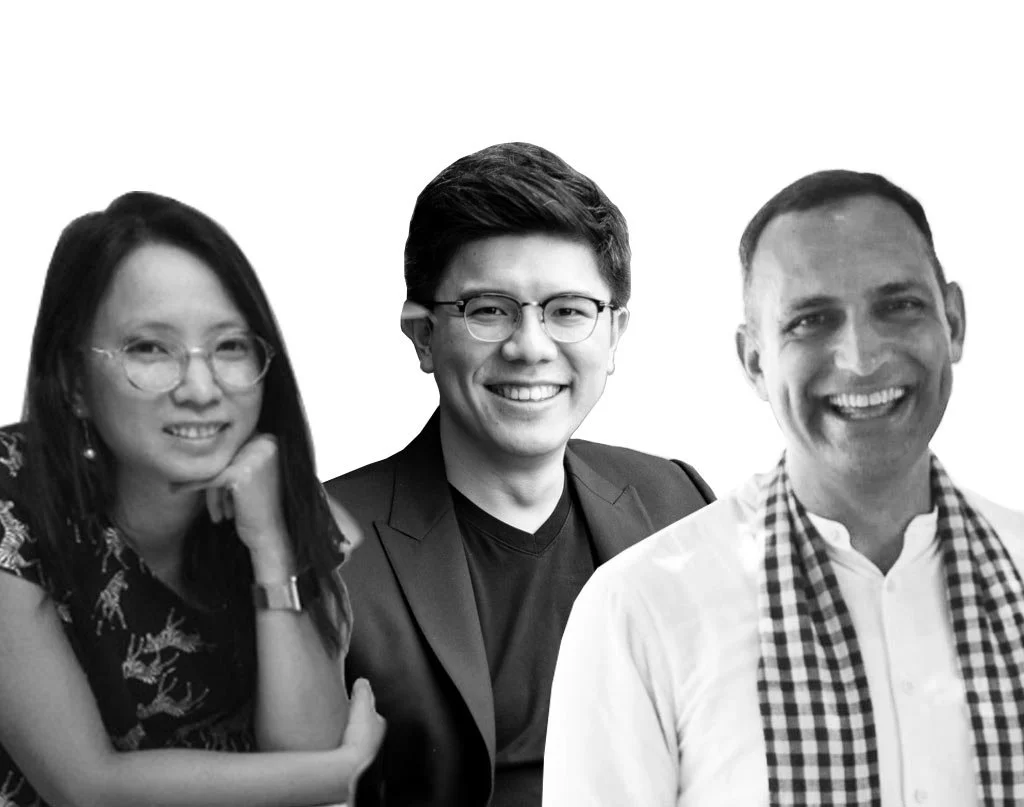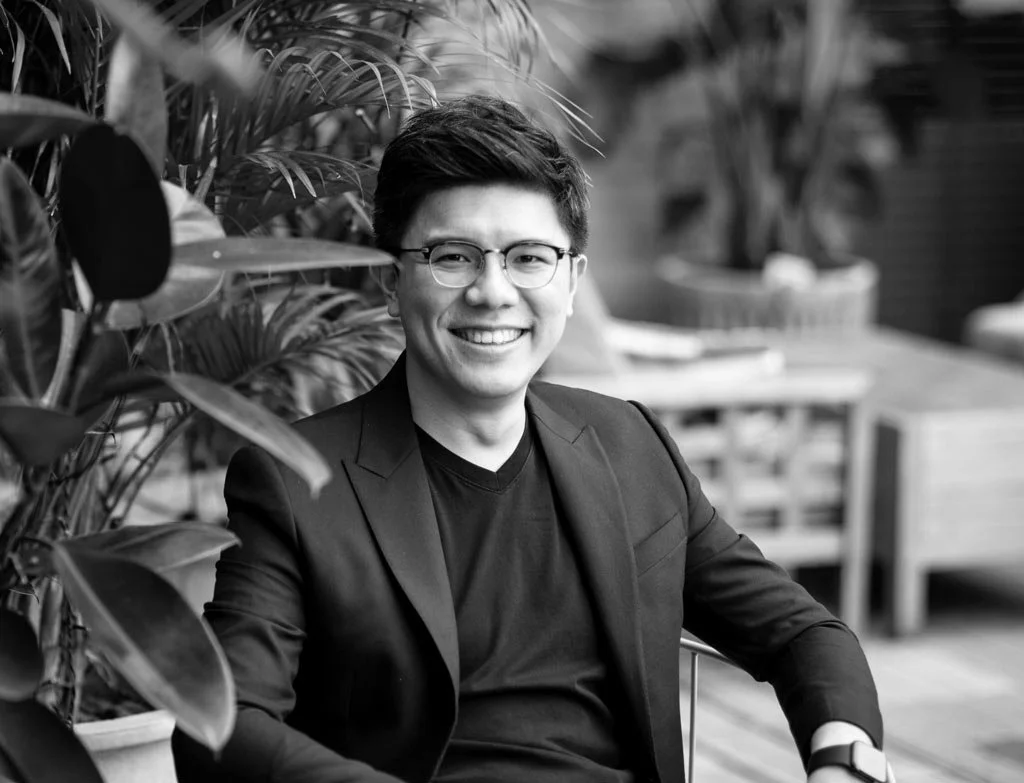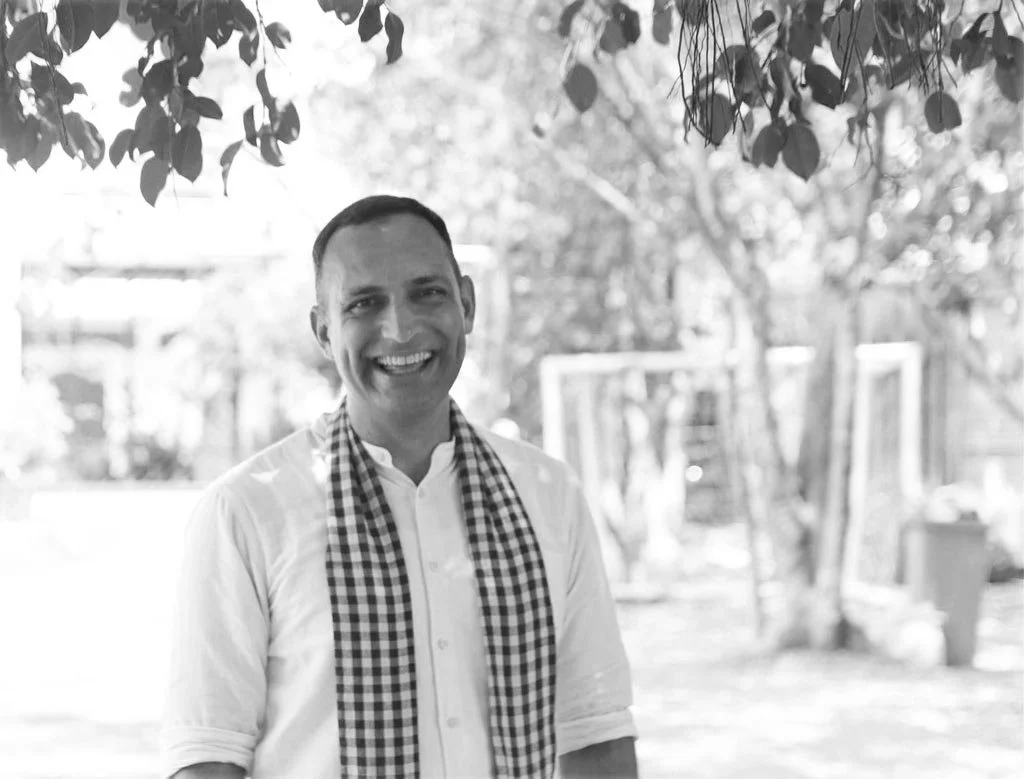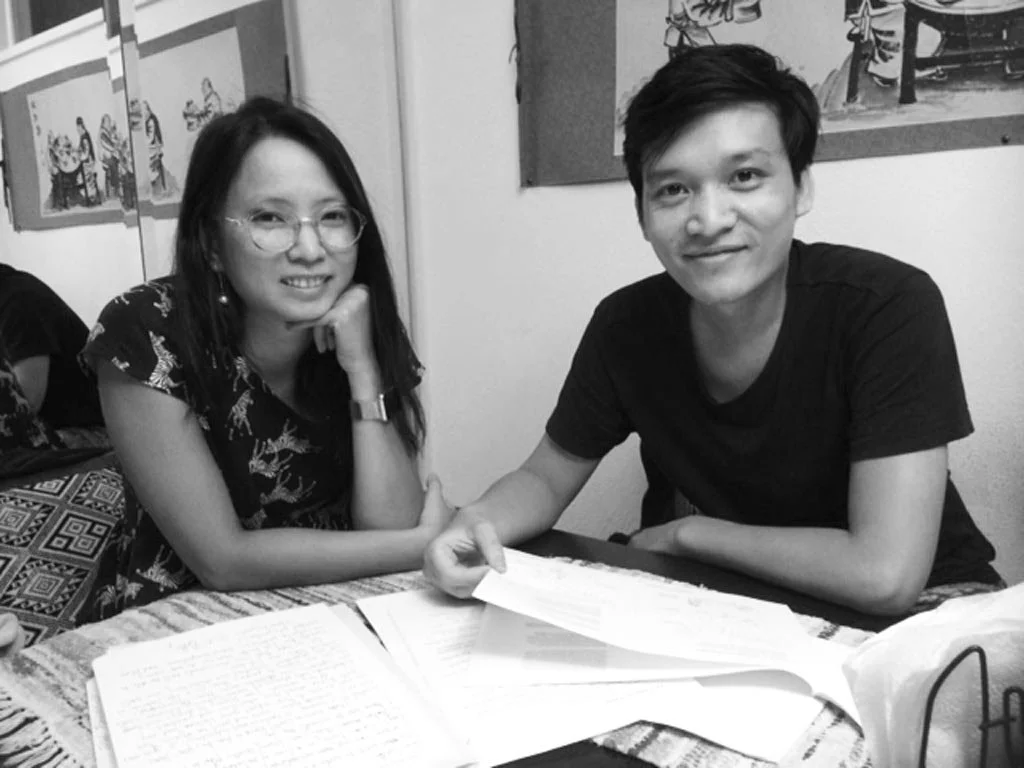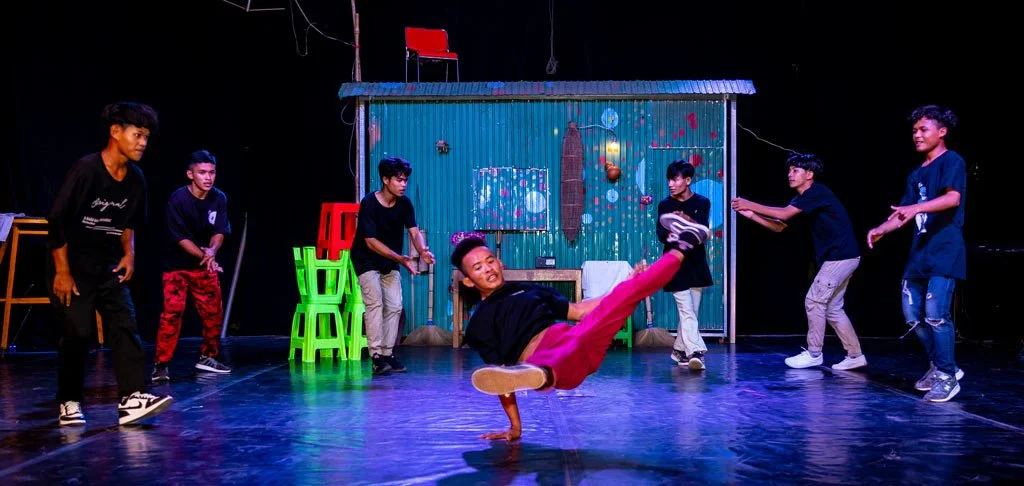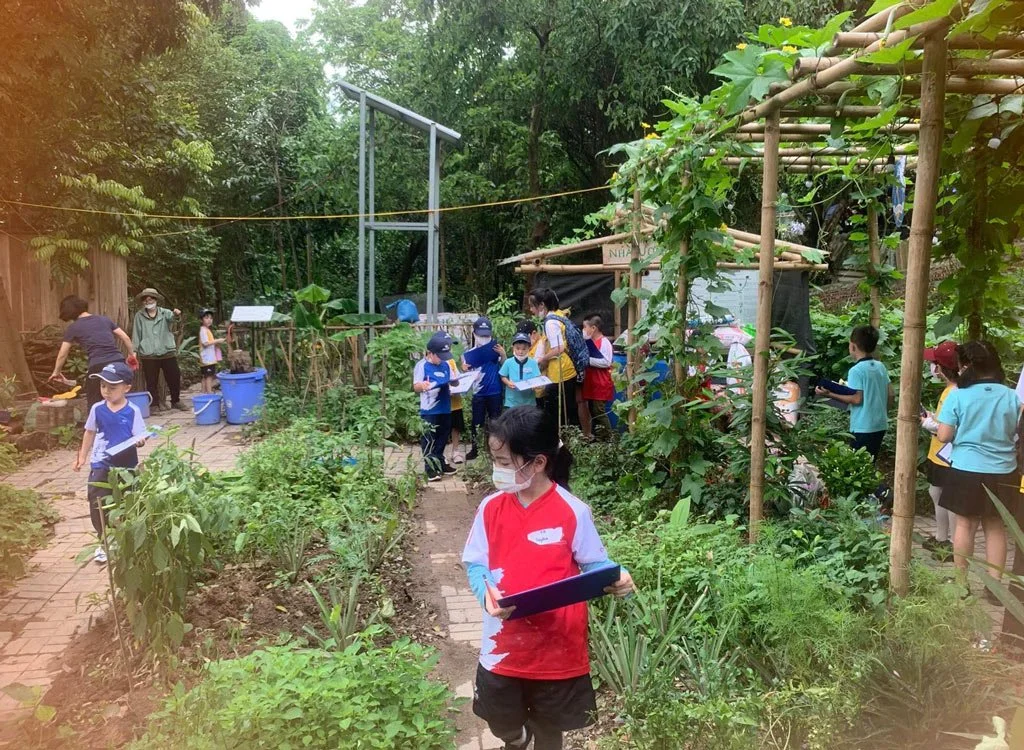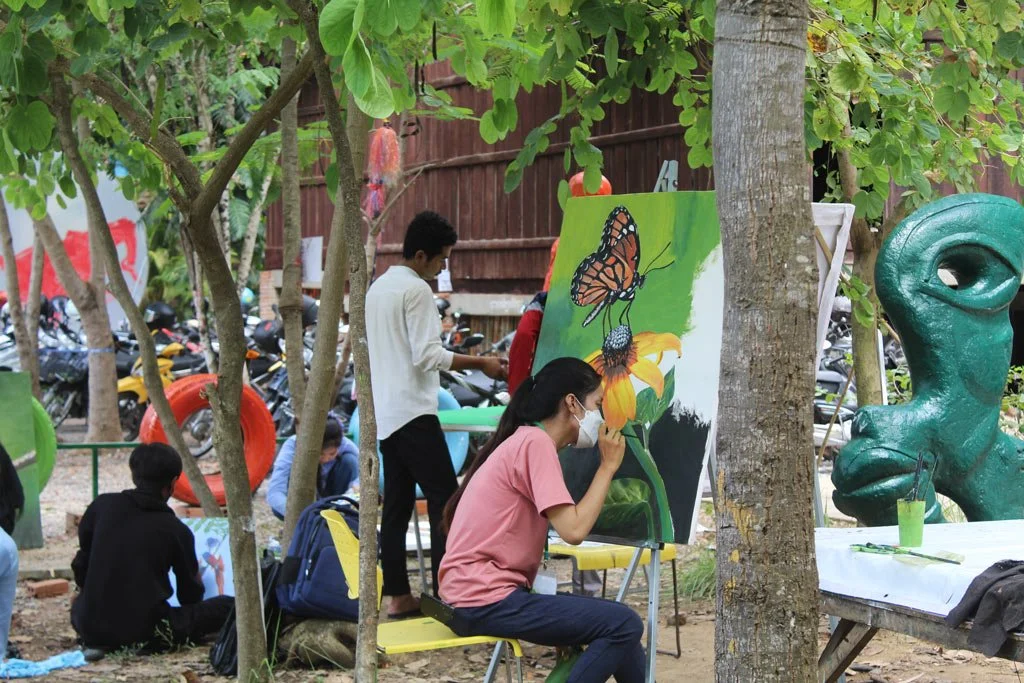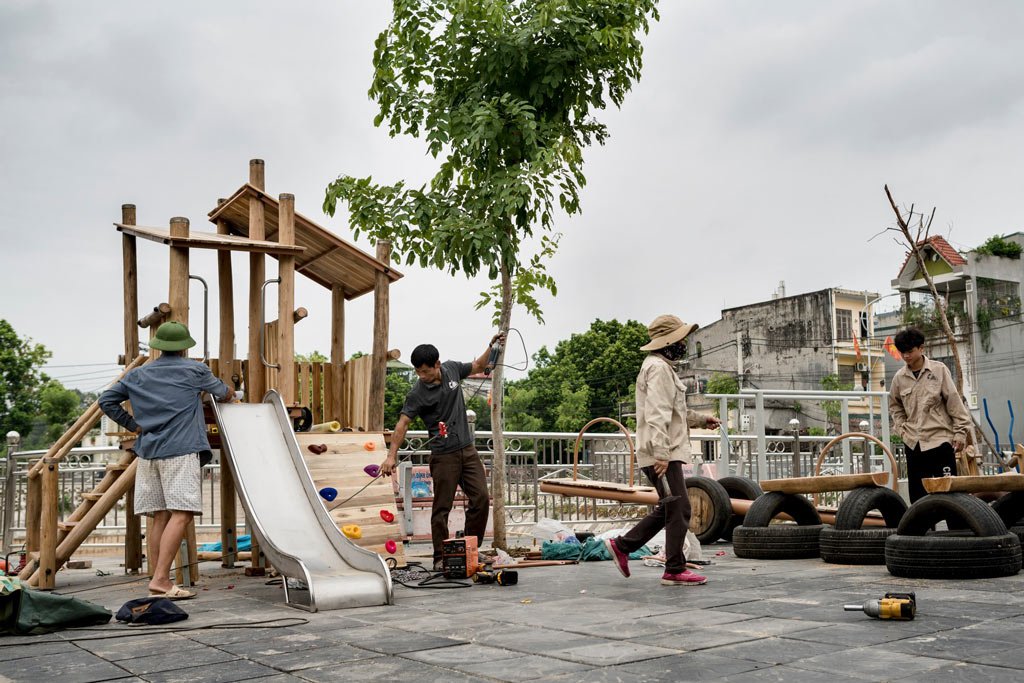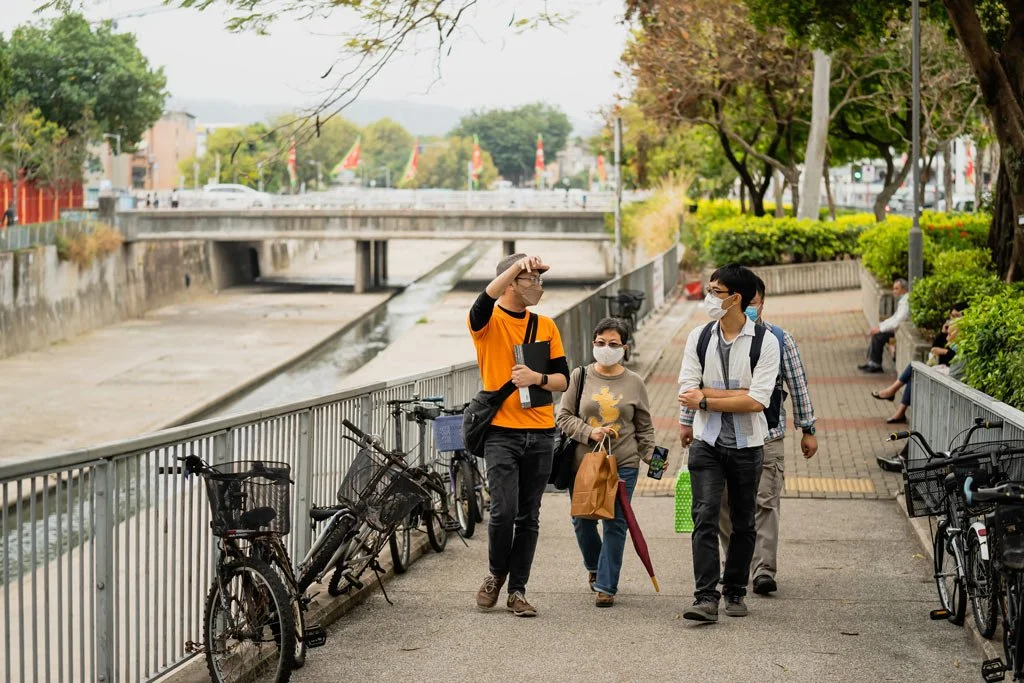APSIPA Award Winners Share Their Insights Into Initiatives Creating Social Prosperity
With the gradual increase of global risks, how can we develop innovative practices to ensure a future where sustainability will become mainstream? The Asia Pacific Social Innovation Partnership Award is established to explore dynamic social innovation models in the Asia Pacific and to motivate more change-makers to contribute to social innovation, discovering and celebrating social innovation partnerships that connect diverse stakeholders and make significant social impacts. Partnership cases are required to set the United Nations Sustainable Development Goals (the SDGs) as their core value.
The award sets motivating social innovation partnerships as its purpose, integrating 17 SDGs sorted into three categories, Biosphere Sustainability, Inclusive Business and Social Prosperity. Three winners were chosen from each category and there was one Special Jury Prize chosen by the judging panel.
The Social Prosperity Award focuses on social innovation initiatives relevant to fundamental dignity in human society. The highly related corresponding SDGs are SDG1: No Poverty, SDG2: Zero Hunger, SDG3: Good Health and Well-Being, SDG4: Quality Education, SDG5: Gender Equality, SDG7: Affordable and Clean Energy, SDG11: Sustainable Cities and Communities and SDG16: Peace, justice and strong institutions.
Asia Pacific Social Innovation Partnership Award Social Prosperity Winners
Warren Luk
Good Lab
Warren serves as CEO of Good Lab (www.goodlab.hk), a non-profit and award-winning social innovation Think-and-Do Tank in Hong Kong, dedicated to facilitating community engagement and collaboration with public & social sector organisations to design human-centric solutions in response to social challenges.
Warren believes everyone can be a changemaker. He has forged new forms of cross-sector partnerships between civil society, NGOs and the Government and spearheaded numerous large-scale public and social sector innovation projects. Passionate about civic participation, Warren uses Design Thinking as the methodology to engage with local communities, listening to people’s needs and co-creating innovative ideas with them.
Osman Khawaja
Phare Ponleu Selpak
Osman Khawaja is the Executive Director of the non-profit arts and circus school, Phare Ponleu Selpak, Battambang, Cambodia and a board member of Phare Performing Social Enterprise. He specializes in NGO management with a focus on education, organizational development and human resources.
Having lived and worked in Pakistan, Switzerland, Austria, USA, Singapore, Indonesia and now Cambodia, Osman brings a global perspective to challenges while staying sensitive to local contexts. Osman has over 10 years of NGO management experience. Prior to his move to the non-profit sector, Osman worked in private and corporate roles for 10 years with international real estate and hospitality companies. Osman graduated with a Masters from the Cornell-Nanyang School of Hospitality, Singapore in 2007.
Chu Kim Duc
Think Playgrounds
Chu Kim Duc co-founded Think Playgrounds in 2014 as a volunteer group to pilot solutions for public spaces friendly for children and promote children’s right to play. In 2016 she registered as director of Think playgrounds, officially a Social Enterprise. Until 2021, Think playgrounds worked with partners, communities and local governments to build over 200 public playgrounds in Vietnam, piloting new models of community engaged in renovating friendly, inclusive and creative public spaces. In 2020, she is named on the list of 100 influential women in the world by the BBC for her role to promote children’s right to play.
Highlights from the Panel
(listen to the podcast for full details)
[Tom Allen] - Warren, can you please share a bit about Good Lab, the impact you are creating and what led to your passion in social innovation?
[Warren Luk] - I'm the CEO of Good Lab in Hong Kong. Specifically, the project we have introduced is called the Community Design Lab @ Yuen Long, which is the flagship project of Good Lab we completed last year. It was actually a public sector innovation project in Hong Kong, and we facilitated community participation in the vibrant district of Yuen Long to work with people to reimagine and design its iconic town Nullah for a more sustainable and prosperous community. Throughout that process, we partnered with the Drainage Services Department of the Hong Kong government, engineers, landscape architects, as well as most importantly local residents living in the area, the District Council, green groups and other professionals we believe are relevant to the project. In 15 months, we engaged over a thousand people throughout this participatory design process, and we co-created design principles and prototyped a human-centric revitalisation scheme for the future Nullah in the district.
This project illustrated a community co-creation and trust building process, bringing different parties together to improve the wellbeing of the people in the community.
It's an approach I believe can be applied to other parts of Hong Kong as well as in other places around the world.
Phare Ponleu Selpak.
Osman, let's hear a little bit more about Phare Ponleu Selpak, the impact you're creating and what led to your passion in social innovation?
[Osman Khawaja] - I've been with Phare Ponleu Selpak for about five years as executive director. It was founded by nine Cambodians, who grew up in a refugee camp along the Thai border, and their French art teacher. In the camps, they received art as a form of therapy to overcome their traumas.
When they returned to Cambodia, they saw a big need and wanted to continue the same type of services so that the children, families and communities struggling to rebuild their lives could be supported. Now that program has turned into a full-fledged, professional, performing, visual and applied arts school, even with general education programming that is arts based. Today, Phare continues to impact thousands of lives through their art programming. Their main purpose is to actually build more opportunities for the growing creative industry whilst breaking the cycles of poverty. The program is unique because art education is still not integrated in the public school curriculum, and there are many creative people who cannot find a way forward even in the general education system. Phare actually fills that gap, giving an opportunity to a lot of children and youth that are more creatively oriented and would like careers in the growing creative industry.
Phare is a unique organisation in Cambodia and has a successful working model aimed at financial sustainability for continued social impact using this growing creative industry.
We have a social enterprise that hires our graduates from the performing arts school, performing circus shows daily for tourists. Income from that then is fed back into the organisation to continue providing free education for almost a thousand students a year.
Chu, tell us a little bit more about Think Playgrounds, your specific impact and what led to your passion in social innovation?
[Chu Kim Duc] - Think Playgrounds is a pioneer social enterprise with a mission to promote students’ rights to play by collaborating with multidisciplinary partners and communities to build environmentally friendly, biodiverse and sustainable playgrounds and public spaces. It was originally established in 2014 as a volunteer group, and then became a social enterprise in 2017. During these eight years, Think Playgrounds contributed to improving the quality of life for thousands of people, especially children, women, people with disabilities and migrants in urban areas throughout Vietnam. By the end of 2021, Think Playgrounds and our partners built over 200 public playgrounds and community gardens. We also organised over 30 public play days (play events in Hanoi and Ho Chi Minh City) to raise awareness for people about the importance of play for a child’s development. Think Playgrounds has built nearly 100 playgrounds for private schools, educational firms and new urban areas, and 50% of the profits are used for funding public playgrounds in cities. In addition, we collaborated with over 100 national and international experts and organisations to promote children rights to play and created more public spaces all around the world. Think Playgrounds believes that quality public spaces built within the community are fundamental to achieving social equity, to increase quality of life and community connection of urban citizens. Also, this is the most sustainable solution for children living in the cities in Vietnam to have a playful childhood. rapid urbanisation in Vietnam has led to many challenges, including the lack of public space, especially playgrounds for children. Moreover, many public spaces are now used for private benefits. Inspired by an American friend, Think Playgrounds has a mission to address the right to play, a concept underpinning playground where children can play freely, communicate with other people and close to nature. Since then, we have recognised the importance of playgrounds and how we should have action. Therefore, we decided to start Think Playgrounds to serve this meaningful social innovation.
Think Playgrounds.
What are your observations of the social innovation movement in your respective countries and where do you see key opportunities and next steps?
[Warren Luk] - There are plenty of opportunities. A lot of interesting things are happening in Hong Kong for social innovation right now. But essentially, I would like to highlight four main things. First of all is the emergence of new power. What this essentially means is that there is now a more decentralised approach to social innovation in Hong Kong and actually for Asia as well, where a network of social innovators is being formed rather than social innovation being an institutionalised effort. The second thing I observe is the diversification of solutions to social problems. There are a lot of small organisations working on specific issues and to meet the needs of specific groups of individuals or underprivileged/disadvantaged people in Hong Kong. The third thing I would like to highlight is the desire for impact partnerships. We are facing a lot of complex problems and these need sophisticated solutions. Therefore, I see a lot of organisations and innovators trying to draw on expertise and experiences from many others. This is not only non-profits or social enterprises, but also major corporates in Hong Kong are now involved in social innovation. Finally, my last highlight is the rise of human-centered design. More and more organisations in Hong Kong now understand that for their products and services to be successful, to deal with social issues, they need to be designed around needs and address the pain points of actual people. That's very important if we want the social innovation to fit for purpose and address the imminent needs of the society.
[Osman Khawaja] - In Cambodia, there is lots of room for action and opportunities in this area. Given Cambodia's history of the Khmer Rouge and subsequent years of turmoil, many NGOs entered to support with rehabilitation and development efforts.
Phare Ponleu Selpak.
Given the time it took to build the official government and civil structures, most NGOs work on their own or in parallel, and many are still working in parallel, which builds this great dependency on continued donor funds. There has been a move towards greater partnerships between government and civil society organisations, but there's a lot more room to grow.
There's also more room for bringing in the private sector to create more sustainable social impacts. I think these partnerships are key.
Good Lab.
Hopefully, there will be a decreasing reliance on donor funding so that countries can take greater ownership of the development, not just as countries as a whole, but even the communities that organisations are based in and also identify direct social needs.
I think that's one of the key areas where building more links between the many local NGOs in the community with the local government for more inclusive, targeted approach is need. This will reduce wastage of resources as well, and hopefully bring more people into the net that need certain support and also will be empowered to identify where they actually need support or what areas need to be addressed.
[Chu Kim Duc] - Today, we see diversity and inclusion across the social innovation movement in all countries, especially in the Asia Pacific region. They are developing dynamically with the active support of science and technology, as well as being human centred. Initiatives are carrying interdisciplinary knowledge to address the sources of problems that exist in different countries. We also see ventures and corporations are being replicated among different sectors, as well as between countries to learn experience from each other and apply best practice based on the local context. Nowadays, social issues are no longer a matter of one country. For the next stage, social innovation should be based upon collective intelligence, including those emerging from corporates, academic institutes, civil society, organisation, social enterprise governments, and local communities. This innovation is also a carrier, not only within a country, but requires cross border corporation to create inclusive impacts at regional or international level.
As the Special Jury Prize winners of this year, what have been the biggest barriers in getting Think Playgrounds off the ground and how did you work around them to ensure you're delivering user centred solutions?
[Chu Kim Duc] - The biggest barrier with Think Playgrounds is public awareness. In Vietnam, the majorities of the public are still not aware about the importance of play with children development, as well as not accepting the use of friendly and natural material to develop the senses for children. We often remind each other that raising awareness is a long term process and requires much visual evidence.
Think Playgrounds will continue its journey to create more unique and creative playgrounds with community participation, as well as collaborate with stakeholders to spare our masses for public in order to change their mindset.
Think Playgrounds.
Since establishment, Think Playgrounds has focused on human development. Our top priority is the participation of the community in the process of co-curating and managing public spaces in order to increase their ownership and responsibility in public spaces. We engage groups such as children, women and migrants to create conditions for them to raise their voice, improve their capacity and improve their rights in the use of public space. Almost all public spaces are designed to be fairly safe and multi-functional to have community connect with each other and nature. We believe public space is a hub to bring the community closer and join hands to actively solve common problems in an effective way.
What's one piece of advice that you would all give to other impact led entrepreneurs or innovators who are starting out on their journey and really focused on creating social prosperity?
[Warren Luk] - I would suggest…
the key thing is to start small, prototype your solution and refrain from trying to develop the perfect solution. I think social innovation is underpinned by an iterative process where you continuously experiment and improve your ideas.
[Osman Khawaja] - My advice revolves around the words already in your question, which are about focus, maintaining purpose and organisation at the front of everything you do.
But also, at the same time, be open to input from the community. That is a very important role I've seen organisations try to do too much. Many ideas come along but trying to stay focused is key in being able to build the steps to success.
[Chu Kim Duc] - Based on our experience, we can share a new social enterprise should focus on solving social problems based on the beneficiary owners with innovative forms of existing solutions. Please take a human centred approach to keep your beneficiaries at the centre of your work, as well as expand your multidisciplinary partners for creating inclusive social impact.
To finish off, what books or resources would you recommend to our listeners?
[Warren Luk] - I would suggest a book I have recently finished called Nudge by the very renowned Professor from the University of Chicago, Richard Thaler and another legal professor from Harvard Cass Sunstein. It's a book about the Nudge Theory, a concept in behavioural science and economics. It essentially says that by shaping the environment, one can influence behaviours and the decision making of groups or individuals.
It's quite relevant to social innovation, because I think when we are undertaking or promoting social innovation, inducing mindsets and behavioural change is quite crucial, especially around topics or issues such as environmental sustainability or sustainable development, where we are trying to shape the environment where people make decisions that are good for them and the planet.
Good Lab.
[Osman Khawaja] - One book I've read recently was because I came into an organisation that was already existing and I needed to redirect and move in with all the changes happening for greater impact. The book I would recommend is called Reinventing Organisations by Frederic Laloux, and that was a big inspiration into what is needed in the direction of an organisation. We move to consciously evolve where things work for everyone and where everyone's involved in the processes. That book had a big impact on me as well as helped Phare forward.
[Chu Kim Duc] – One book I would like to recommend people to read is Play Matters by Miguel Sicart.
This book is focused on why play is a productive, expressive way of being and forms an understanding and a fundamental part of our wellbeing.
We can find many interesting things in this book; it is not only fun and happy, but also highlights challenges and dangers.
This content is sponsored by Small and Medium Enterprise Administration, Ministry of Economic Affairs, Taiwan.
Books and Resources Recommended by panelists
From Warren:
Nudge: Improving Decisions About Health, Wealth, and Happiness by Professor Richard Thaler and Cass Sunstein
From Osman:
Reinventing Organisations by Frederic Laloux
From Chu:
Play Matters by Miguel Sicart

